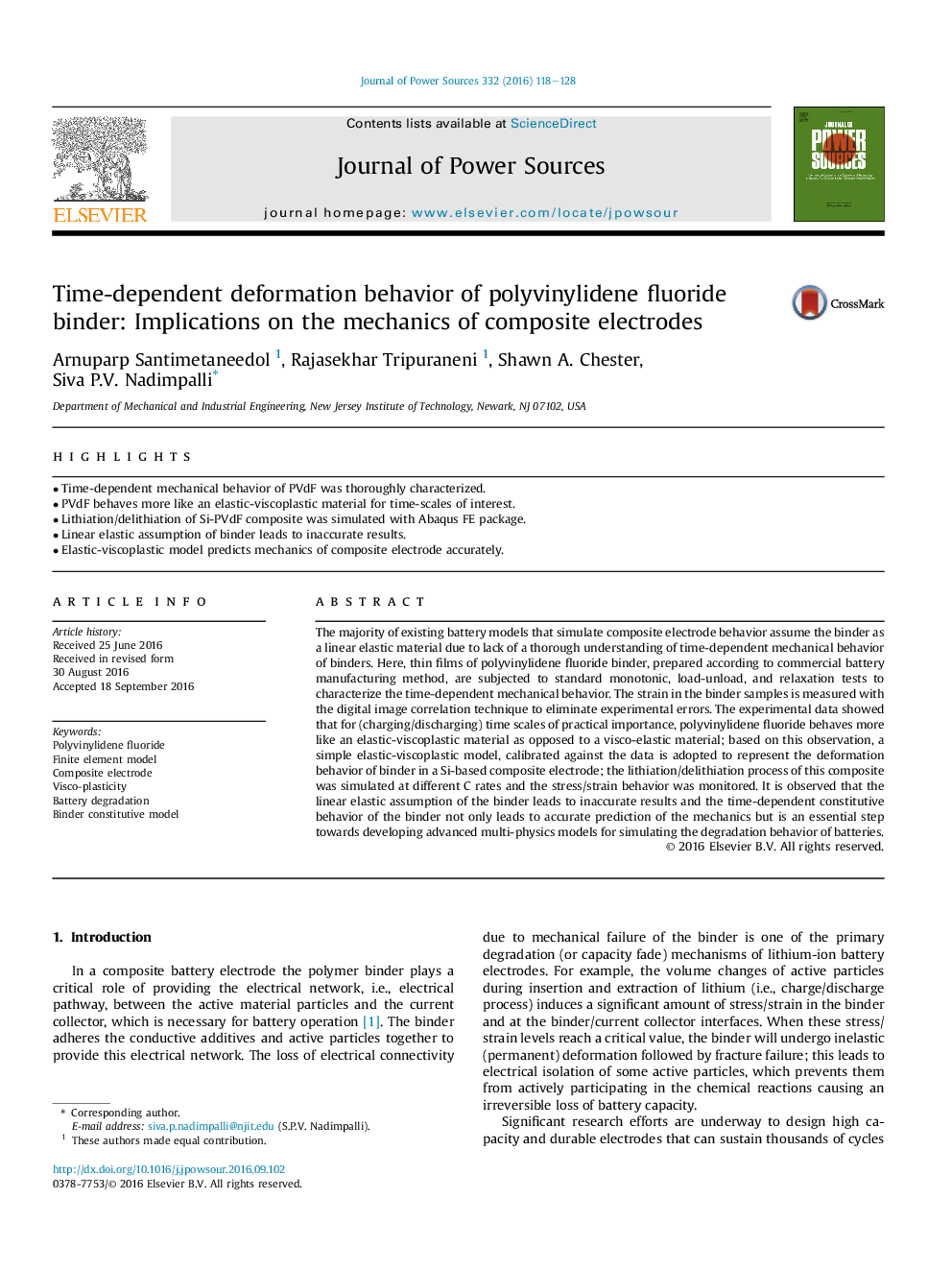| Article ID | Journal | Published Year | Pages | File Type |
|---|---|---|---|---|
| 5150116 | Journal of Power Sources | 2016 | 11 Pages |
Abstract
The majority of existing battery models that simulate composite electrode behavior assume the binder as a linear elastic material due to lack of a thorough understanding of time-dependent mechanical behavior of binders. Here, thin films of polyvinylidene fluoride binder, prepared according to commercial battery manufacturing method, are subjected to standard monotonic, load-unload, and relaxation tests to characterize the time-dependent mechanical behavior. The strain in the binder samples is measured with the digital image correlation technique to eliminate experimental errors. The experimental data showed that for (charging/discharging) time scales of practical importance, polyvinylidene fluoride behaves more like an elastic-viscoplastic material as opposed to a visco-elastic material; based on this observation, a simple elastic-viscoplastic model, calibrated against the data is adopted to represent the deformation behavior of binder in a Si-based composite electrode; the lithiation/delithiation process of this composite was simulated at different C rates and the stress/strain behavior was monitored. It is observed that the linear elastic assumption of the binder leads to inaccurate results and the time-dependent constitutive behavior of the binder not only leads to accurate prediction of the mechanics but is an essential step towards developing advanced multi-physics models for simulating the degradation behavior of batteries.
Keywords
Related Topics
Physical Sciences and Engineering
Chemistry
Electrochemistry
Authors
Arnuparp Santimetaneedol, Rajasekhar Tripuraneni, Shawn A. Chester, Siva P.V. Nadimpalli,
